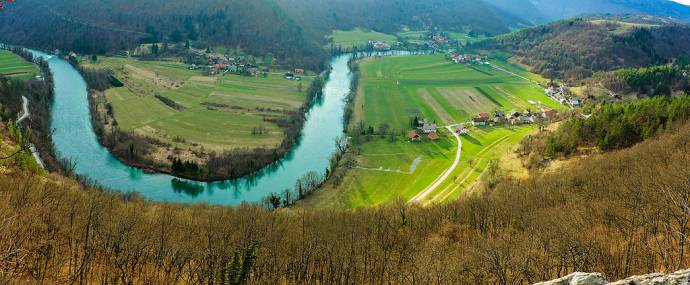The mayors of Črnomelj and Metlika spoke to the STA on Tuesday after the region received a visit from an Interior Ministry official yesterday to discuss the situation ahead of the holiday season.
Metlika Mayor Darko Zevnik said that State Secretary Boštjan Šefic told them the ministry was considering replacing the controversial razor wire with a welded wire panel fence.
On the spots along the border river where there is no fencing, the police are thinking of beefing up controls if necessary, depending on the migration flows.
About a month ago Šefic also met officials from the bordering municipality of Črnomelj, which has seen most illegal migrants so far.
Črnomelj Mayor Mojca Čemas Stjepanovič said the police were doing their job along the border in accordance with their powers and were managing the situation.
The comments come after a local civil initiative from Bela Krajina, along with those from Škofije on the coast and Velenje in the north, argued last week that authorities had not done enough to contain the crisis.
They also argued that the authorities had failed to prevent the tragic drownings in the Kolpa. Seven migrants have been reported to have drowned in the border river this year, four of which on the Slovenian side.
In Črnomelj, virtually all of the razor fence has been replaced by a panel fencing. The border is policed where there is no fence, and if necessary a new fence will be erected there as well.
Šefic also promised that in case of an increased pressure in the border, the police would adjust and step up its activities in the region.
The mayors also told the STA that the local population had not had any problems with the migrants and did not expect any. But they were advised to be cautious.
Over the past weekend police apprehended 92 illegal migrants in Bela Krajina, after stopping 34 last Wednesday.
The Koper Police Department, which covers the border further to the west, registered another 77 illegal migrants between Friday and Sunday.
Data available as of 20 May show that Slovenian police apprehended more than 1,900 illegal migrants this year. Most have asked for asylum, but many of them tend to continue their journey to other countries in the Schengen area.







